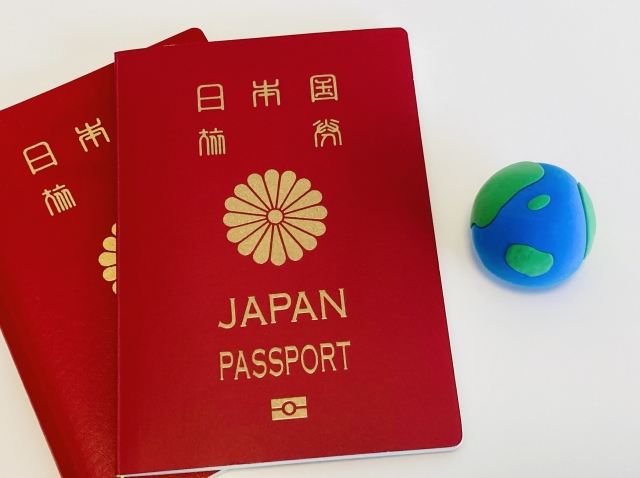I’m Takashi Akeyama, a representative of the Niseko VISA & Immigration Support Centre. As the only Administrative scrivener(行政書士) office in Hokkaido specializing in VISA & Immigration and tourism, we help foreigners living in Hokkaido, mainly in Niseko, Otaru and Sapporo areas, to apply new or extend VISA, to change the status, such as working visas and spouse visas etc.
The way for foreigners to stay in Japan without changing their nationality and without having complicated procedures to extend the visa, is to obtain “Permanent Resident” visa. Compared with working visa holders, the conditions and requirements to apply Permanent Resident visa are easier for spouse of Japanese. In this article, I will explain the conditions and requirements for spouse of Japanese to obtain a permanent residence visa.
Residence requirements for spouse of Japanese to applying for Permanent Resident visa.【居住要件】
The calculation of the years of residence requirement depends on how long the couple has been married and in which country they have lived since their marriage.
(1) If you have always lived in Japan after marriage.
In this case, the requirement is that the couple must have “continuously resided in Japan for at least three years” after the marriage.
(2) If the couple has a history of living outside Japan after marriage.
In this case, the requirements are that the marriage has continued for at least three years and that the couple has continuously lived in Japan for at least one year.The couples who came to Japan after getting married abroad. The couples who were married in Japan and then moved abroad together and returned to Japan.
For example, the couple have been married abroad for two years and then come to Japan together and have lived for one year, or the couple married in Japan is assigned to an overseas posting six months after their marriage, return to Japan at the end of their 18-month posting period, and then spend one year in Japan.
(3) Meaning of ‘ continuously ‘
The word ‘ continuously ‘ precedes the number of years required above. What does this mean?
①Those who have never left Japan after entering the country and have always lived in Japan.
→As you can read, this means that the person has ” continuously“ lived in Japan, so there is no problem.
②Those who have left Japan several times.
→Those who have left Japan on private trips for wedding ceremonies, funerals and other private occasions in their home country, or for business trips by orders from their employer. Those who have repeatedly entered and left Japan. In the case of such persons,
(i) If the number of days per departure from Japan does not exceed approximately three months (90 days), or
(ii) The total number of days of departure from Japan in a year does not exceed approximately 100 days.
then you are considered to have ” continuously ” lived in Japan for that period.
It is important to note that, regarding (ii), even if you leave Japan for less than three months at one time, when the total number of days you leave Japan exceeds 100 days in a year, the count of the days you stayed in Japan up to that point will be reset. For example, if you leave Japan four times in a year for 30 days each time, each time is within 90 days, so the (i) is OK. However, since the total number of days of departure from Japan is 120 days, the (ii) is exceeded. Therefore, the count of the days of stay up to that point will be reset. A new count stars from the date of re-entry into Japan, after this point, they have to “continuously ” lived in Japan for one or three years to meet the requirement.
“Actual married life” is required.【実態のある結婚生活】
After marriage, the marriage must have been in existence for at least three years. What exactly does this “actual married life” mean? First of all, you must be living together with your Japanese spouse in the same house. If the registration procedure has been completed, but the foreigner has been lived abroad separately for three years and not lived together, it cannot be said that the actual marriage has continued.
What type of visa do I need after marriage?【結婚後のビザの種類】
The type of visa for a foreign spouse does not have to be a ‘spouse of Japanese’ visa. If they continued to work after marriage, some people do not change from working visa. Even such persons meet the requirements for a Permanent Resident visa if they have legally completed formal marriage procedures and have been in actual marriage for at least three years.
“Household income” requirement【生計要件】
There is no household income requirement for foreigners married to Japanese. However, the Japanese spouse should have an income at least 3.5 million yen per year, in order to live with their spouse.
“Behavior” requirements【素行要件】
(1) Have not violated Japanese laws and regulations and have not been sentenced to imprisonment, imprisonment or a fine.
(ii) Have not repeatedly committed illegal acts, violations or acts that disturb public morals in their daily or social life.
(iii) have fulfilled their official obligations as a Japanese national (paying taxes and pensions).
When a spouse of Japanese wants to change to Permanent Residence visa, “residence” and “household income” requirements are different from the person changing from a working visa.
In conclusion
For foreigners married with Japanese, the “residence requirements” is greatly mitigated. Household income requirements are also easier to fulfil. On the other hand, as the behavior requirements remain the same, it is necessary to ensure that taxes, social insurance and pension premium are paid on time and in full. The residence requirement for application is relatively short – one year or three years – so if you continue to keep it from an early stage, you should be able to fulfil the application requirements quickly.
The Niseko VISA & Immigration Support Centre help and support foreign nationals who are trying to overcome language, cultural and custom barriers and live as a member of Japanese society. If you have any questions or enquiries about this article, or about the conditions or procedural aspects of applying for Permanent Residence, please feel free to contact us by phone or via the ‘Free Consultation Form’ on our website.




